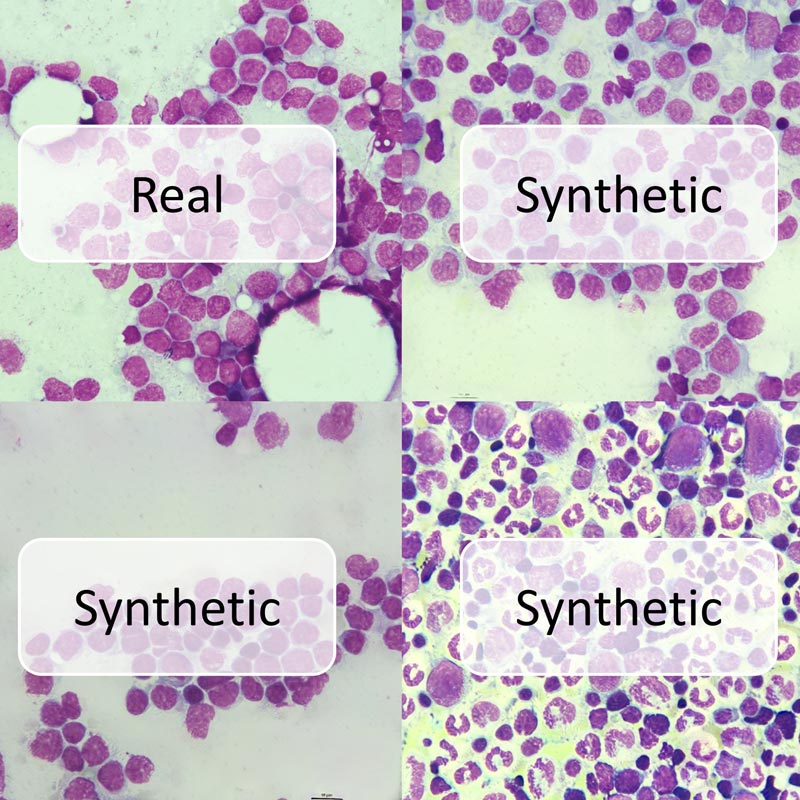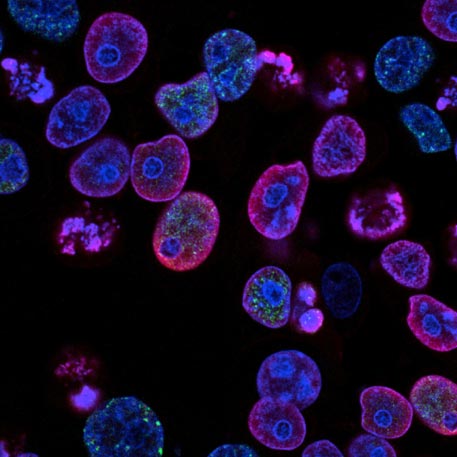Which therapy is best for which patient?
Personalized antineoplastic treatment is a crucial advancement in cancer management tailoring therapies according to individual patient biology. However, most commonly patients are still treated with a ‚one-size-fits-all‘ chemotherapy regimen since deciphering tumor biology and identifying potential markers of adverse risk is a challenging task and targetable molecular lesions for whom specific drugs exist are rare.
In our lab, we use supervised machine learning to predict response to therapy given individual patient biology. Our models are trained on large multi-center data sets of hematologic malignancies such as acute myeloid leukemia, where we currently cooperate with the German Study Alliance Leukemia, the German-Austrian AML Cooperative Group, and partners from the USA.
Our models automatically identify important patient features for outcome prediction, such as molecular and cytogenetic alterations, to provide a data-driven basis for patient management.
As of now, our AML model predicts achievement of complete remission with an accuracy of 86%. Additionally, our model has identified a novel marker of adverse risk in AML that has previously been unacknowledged: Mutations of IKZF1 – a tumor suppressor gene well known in acute lymphoblastic leukemia but insufficiently studied in AML – has been discovered by our model. We went back to the lab and found a hotspot variant conferring adverse risk in AML that was confirmed as an independent predictor of poor outcomes in the clinical setting,
We now aim to expand our models to other hematologic and oncologic neoplasms such as acute lymphoblastic leukemia, multiple myeloma, and diffuse large b-cell lymphoma(among others). Stay tuned for more exciting advancements in machine-learning-guided response prediction!

Publication:
Eckardt JN, Röllig C, Metzeler K, et al. Prediction of complete remission and survival in acute myeloid leukemia using supervised machine learning. Haematologica. 2023;108(3):690-704. Published 2023 Mar 1. doi:10.3324/haematol.2021.280027
https://www.haematologica.org/article/view/haematol.2021.280027
Eckardt JN, Stasik S, Röllig C, et al. Mutated IKZF1 is an independent marker of adverse risk in acute myeloid leukemia. Leukemia. 2023;37(12):2395-2403. doi:10.1038/s41375-023-02061-1
https://www.nature.com/articles/s41375-023-02061-1



